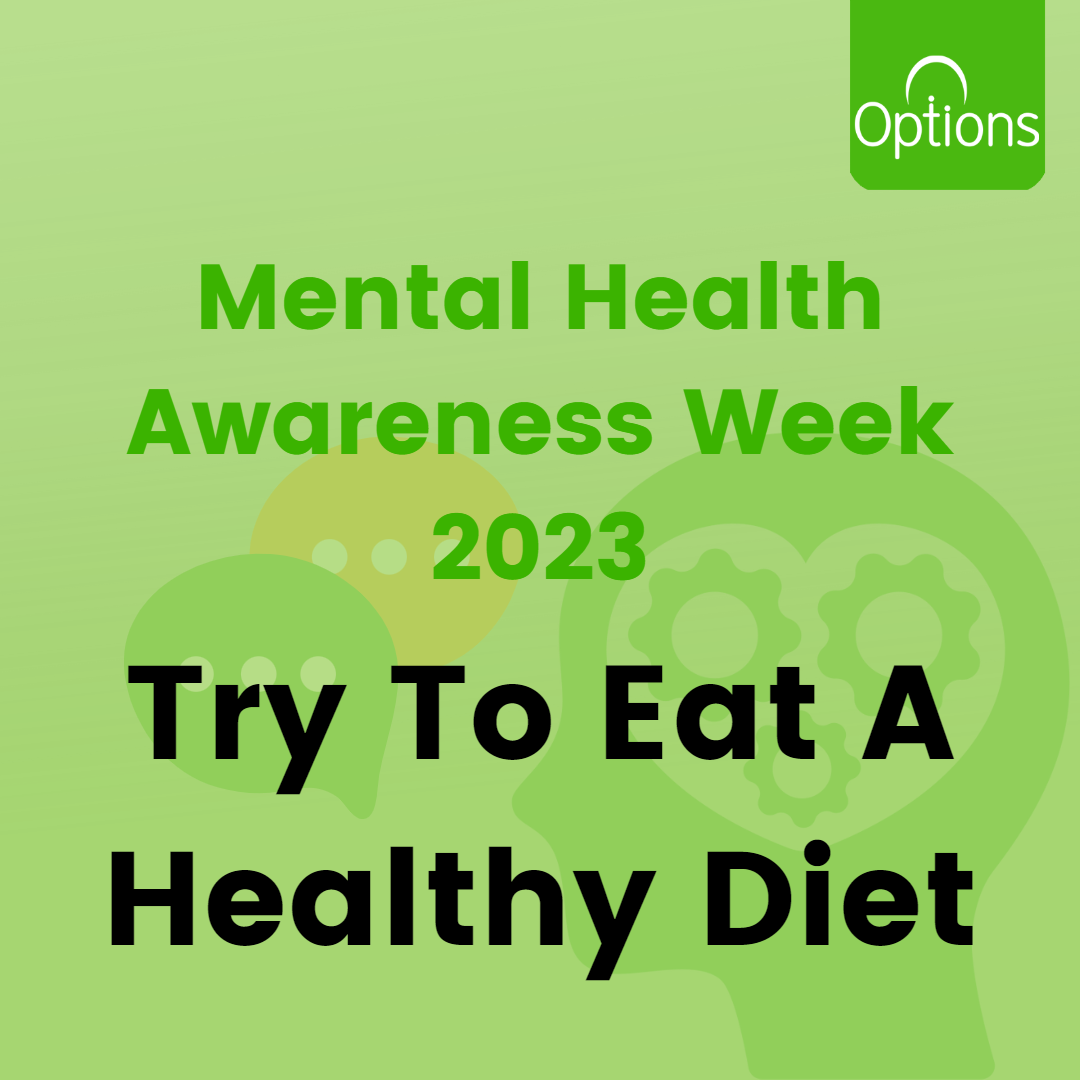
The relationship between our diet and our mental health is complex but eating well can improve your sense of wellbeing and mood.
Food can sometimes act as a comfort for when we are feeling anxious and in some cases our anxiety can make us not want to eat at all. Some studies suggest that what we eat and drink can affect how we feel but it can be difficult to know what to eat, especially when healthier food can be more expensive and it can be hard to think about our diet when we are struggling with our mental health.
The relationship between our diet and our mental health is complex but eating well can improve your sense of wellbeing and mood. You don’t have to make big changes to your diet, but see if you can try some of these tips.
- Eat regularly – This can stop your blood sugar level from dropping, which can make you feel tired and bad-tempered.
- Stay hydrated – Even mild dehydration can affect your mood, energy level and ability to concentrate. Everyone’s needs vary from person to person according to age, time of year, climatic conditions, diet and levels of physical activity. Current UK recommendations are to drink 6-8 glasses of fluid per day.
- Eat the right balance of fats – Your brain needs healthy fats to keep working well. They’re found in things such as olive oil, rapeseed oil, nuts, seeds, oily fish, avocados, milk and eggs. Avoid trans fats – often found in processed or packaged foods – as they can be bad for your mood and your heart health.
- Include more whole grains, fruits and vegetables in your diet. They contain the vitamins and minerals your brain and body need to stay well.
- Include some protein with every meal. It contains an amino acid that your brain uses to help regulate your mood.
- Look after your gut health. Your gut can reflect how you’re feeling: it can speed up or slow down if you’re stressed. Healthy food for your gut includes fruit, vegetables, beans and probiotics.
- Be aware of how caffeine can affect your mood. It can cause sleep problems, especially if you drink it close to bedtime, and some people find it makes them irritable and anxious too. Caffeine is found in coffee, tea, cola, energy drinks and chocolate.
What should you Eat?
Thinking about what to eat can be difficult when you have something playing on your mind, so we have listed a couple of websites that can help you to make good choices and eat well.

The Eatwell guide on the NHS website has detailed information on how to achieve a healthy, balanced diet.

Mind also has advice around food and mental health – with tips on eating well, and how to manage your mood with food, including foods to avoid if you’re taking certain medications
Preparing and sharing meals with others.
Preparing and eating meals with other people has many psychological, social and biological benefits Giving us a sense of rhythm and regularity in our lives, a chance to reflect on the events of the day and an opportunity to feel connected to others.
Here’s a few tips that can could help.
- Make the most of mealtimes by setting aside at least one day a week to eat with family or friends.
- Choose a meal that’s easy to prepare, so it doesn’t become a chore.
- Share responsibility, so everyone has a different task: doing the shopping, setting the table, cooking, or washing up, for example.
Preparing meals with others, building a sense of community and improving mental health led to the idea and creation of Options’ Cooking Group in collaboration with Baytree Cooking Academy
The participants met up every week to work together to prep and cook a meal which everyone then ate for lunch that day. Creating a community group around the meals they made, meant that everyone learnt new cooking skills, learnt about simple nutrition and healthy eating and had a an opportunity to meet up to socialise and make new friends.

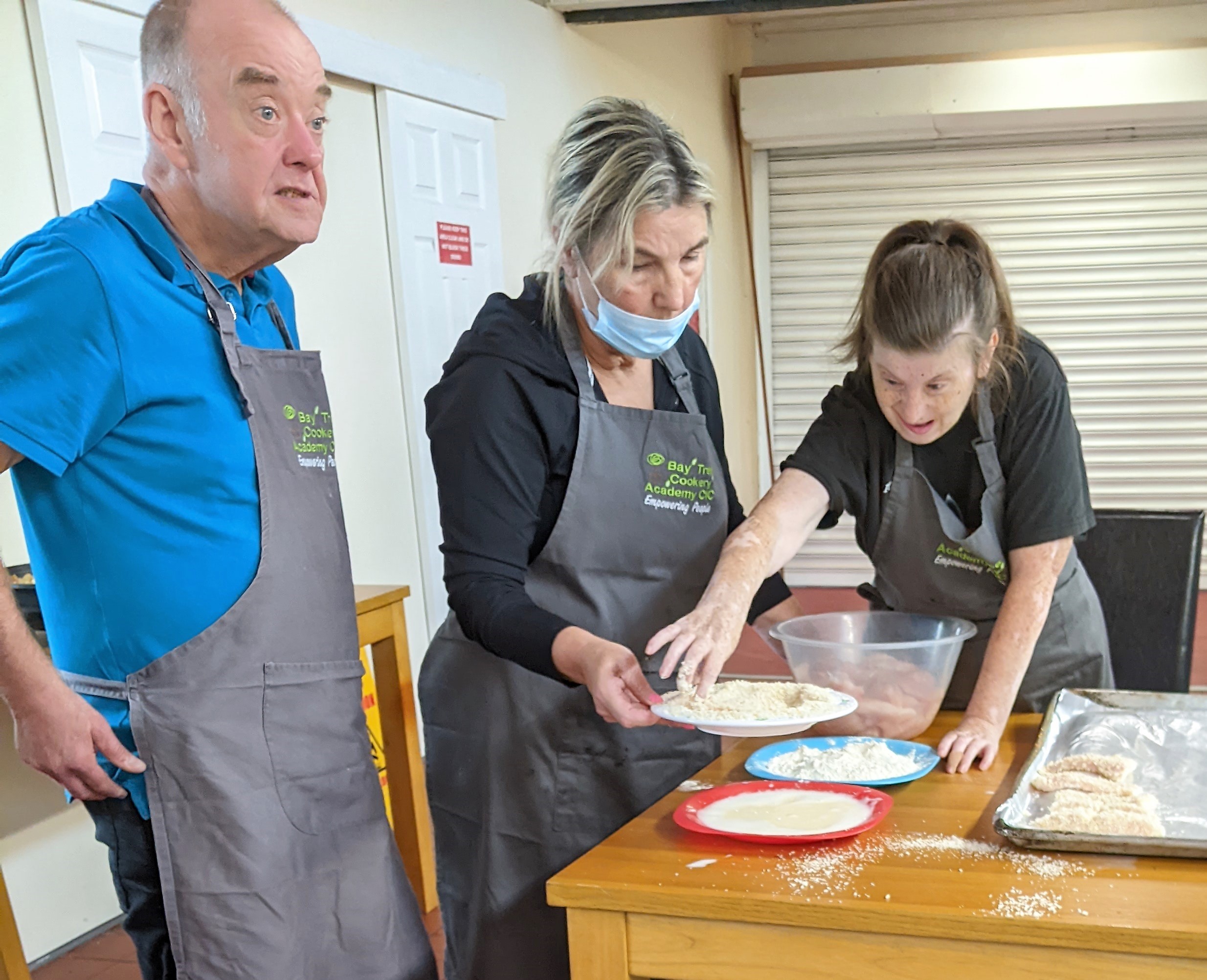
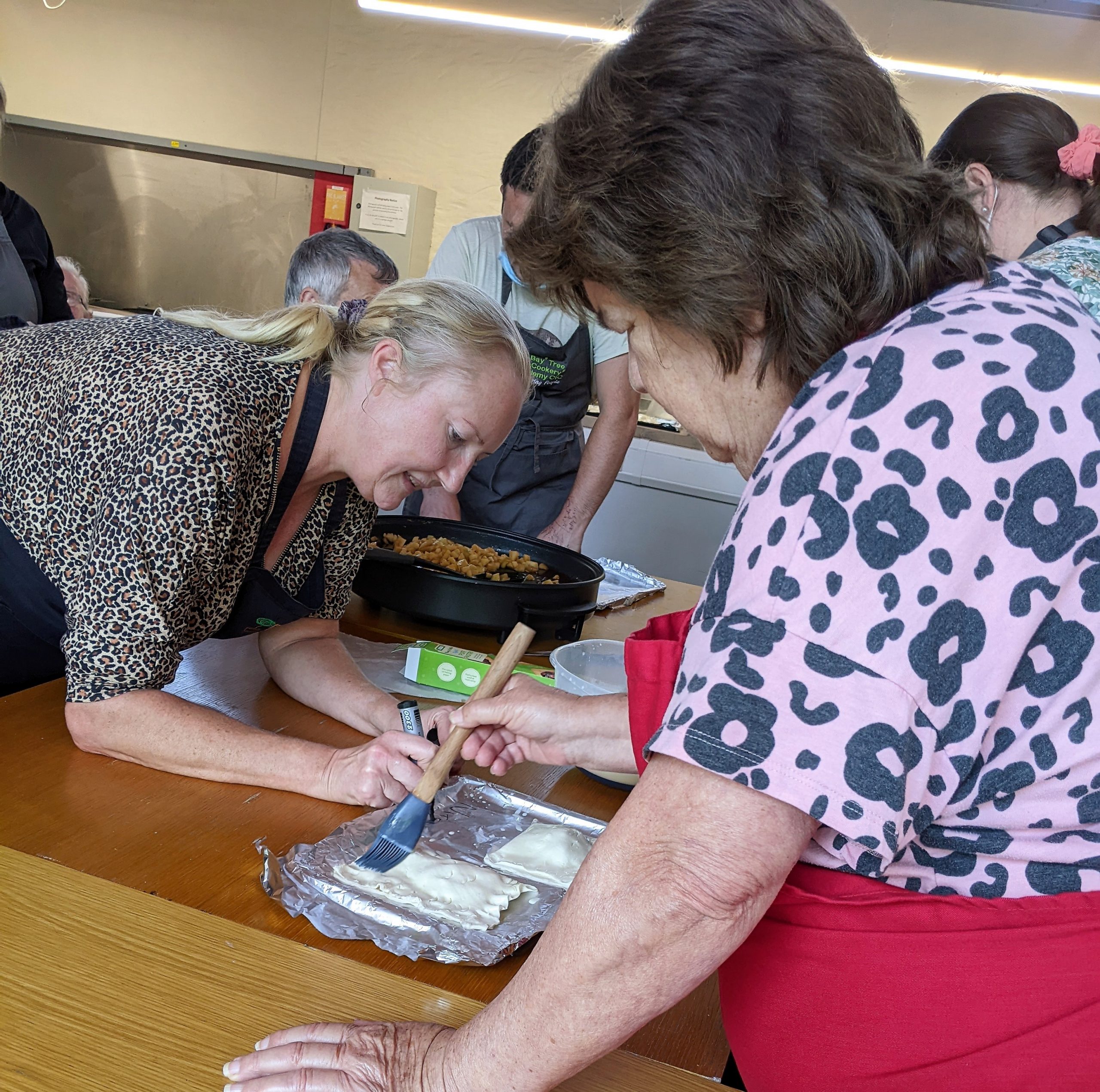
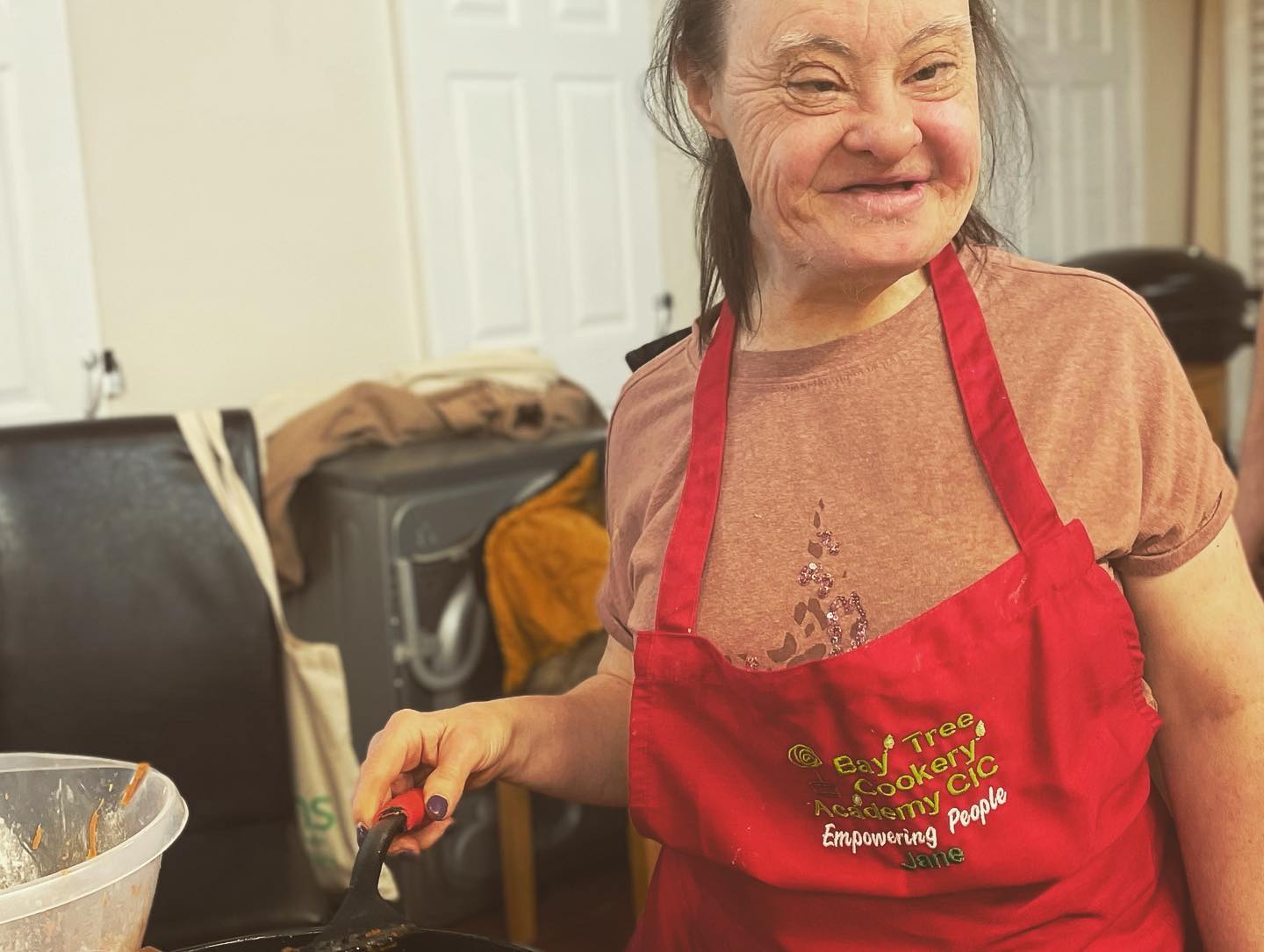
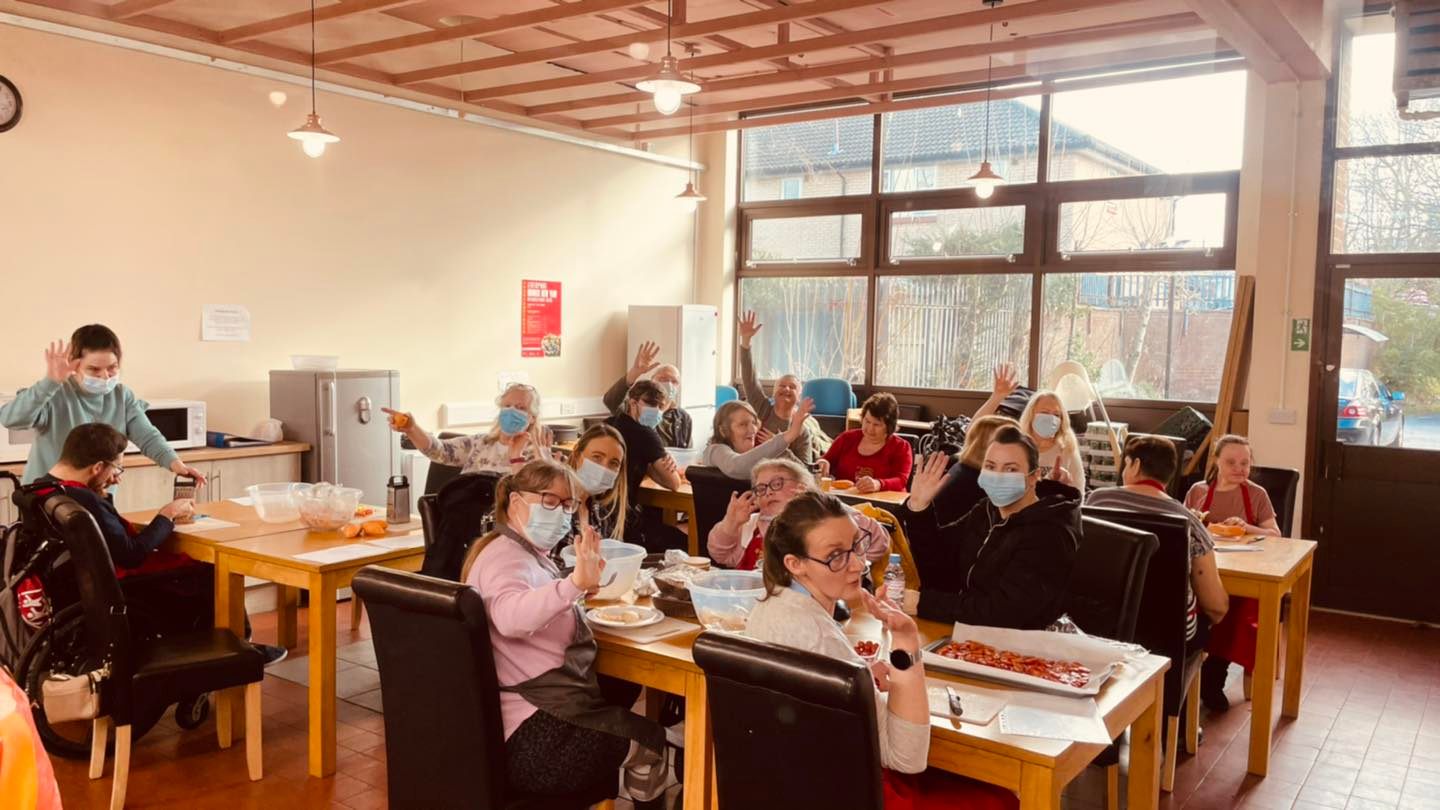
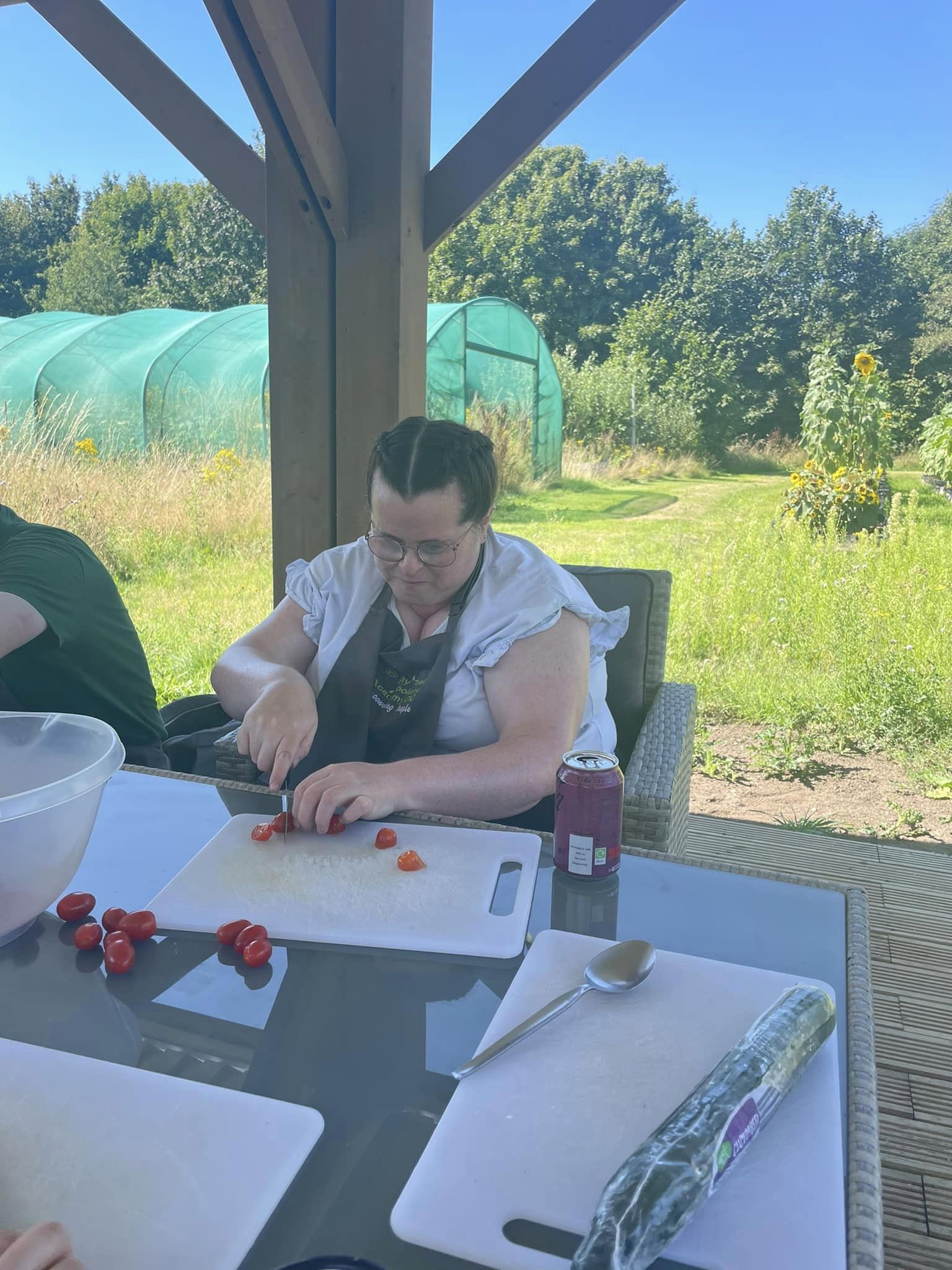
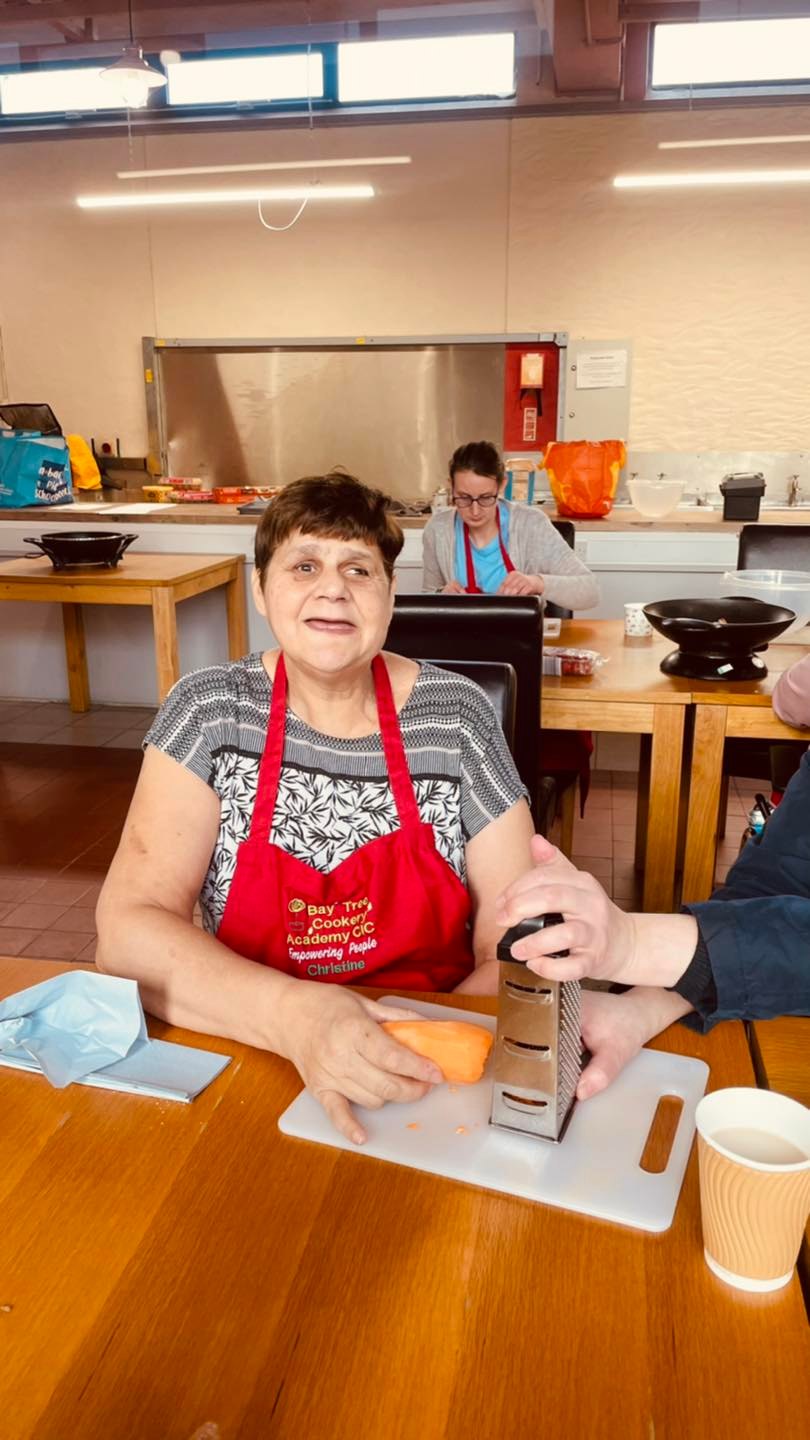
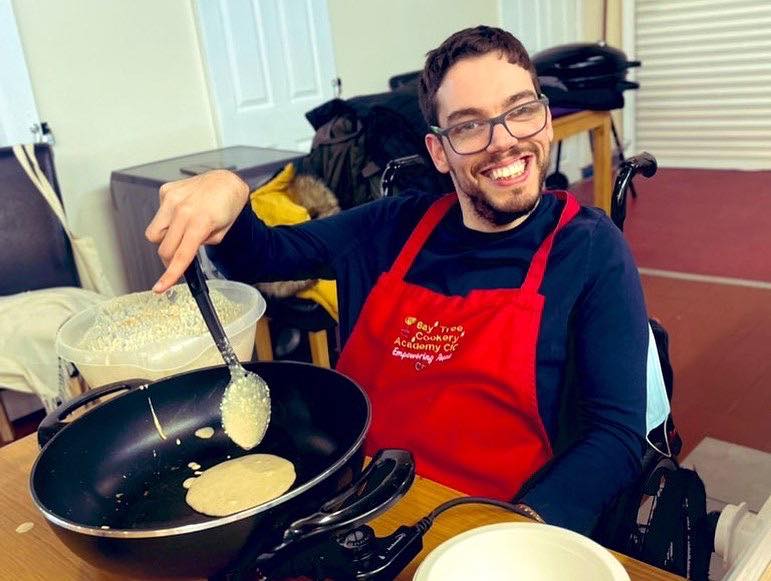
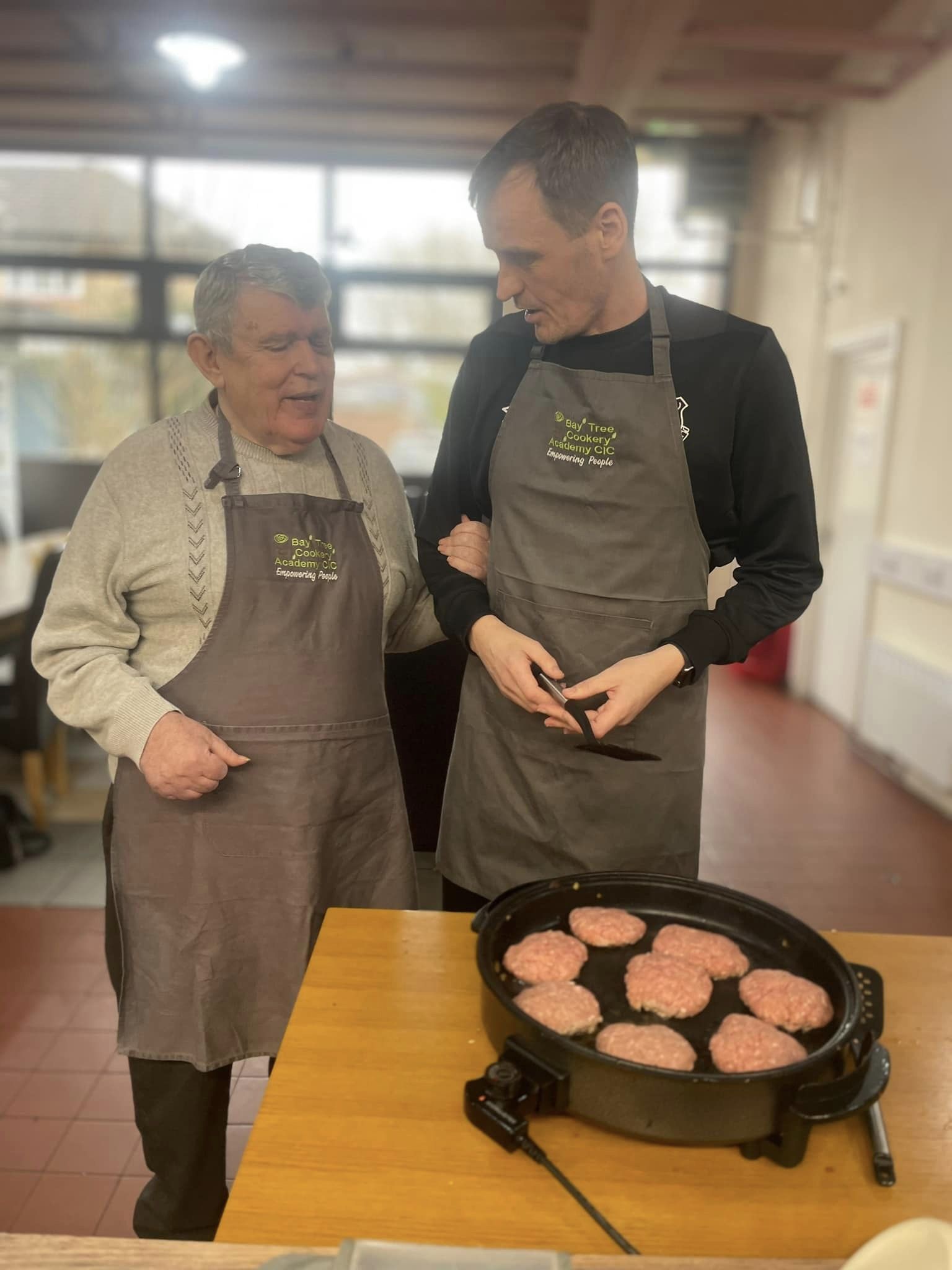
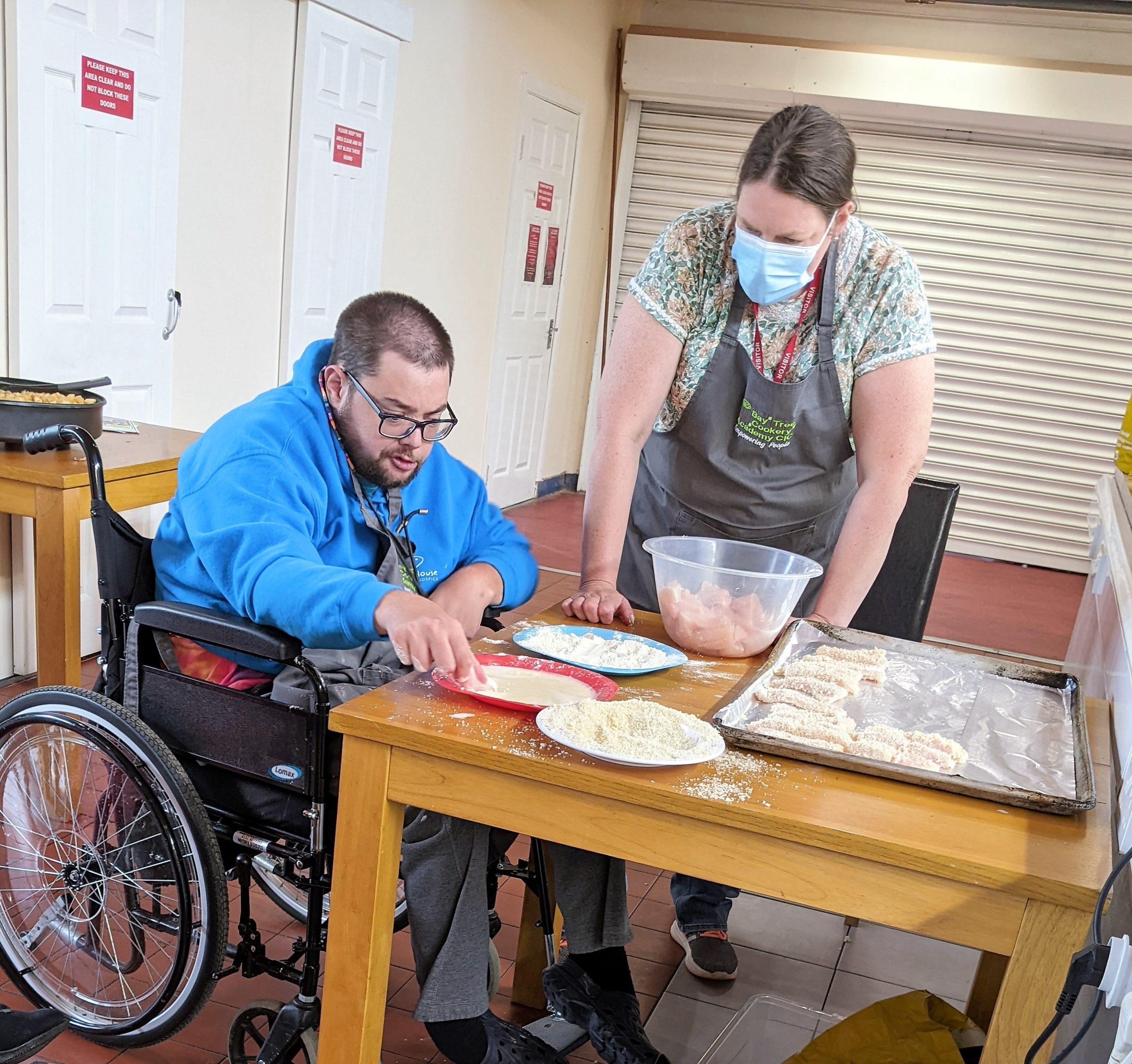
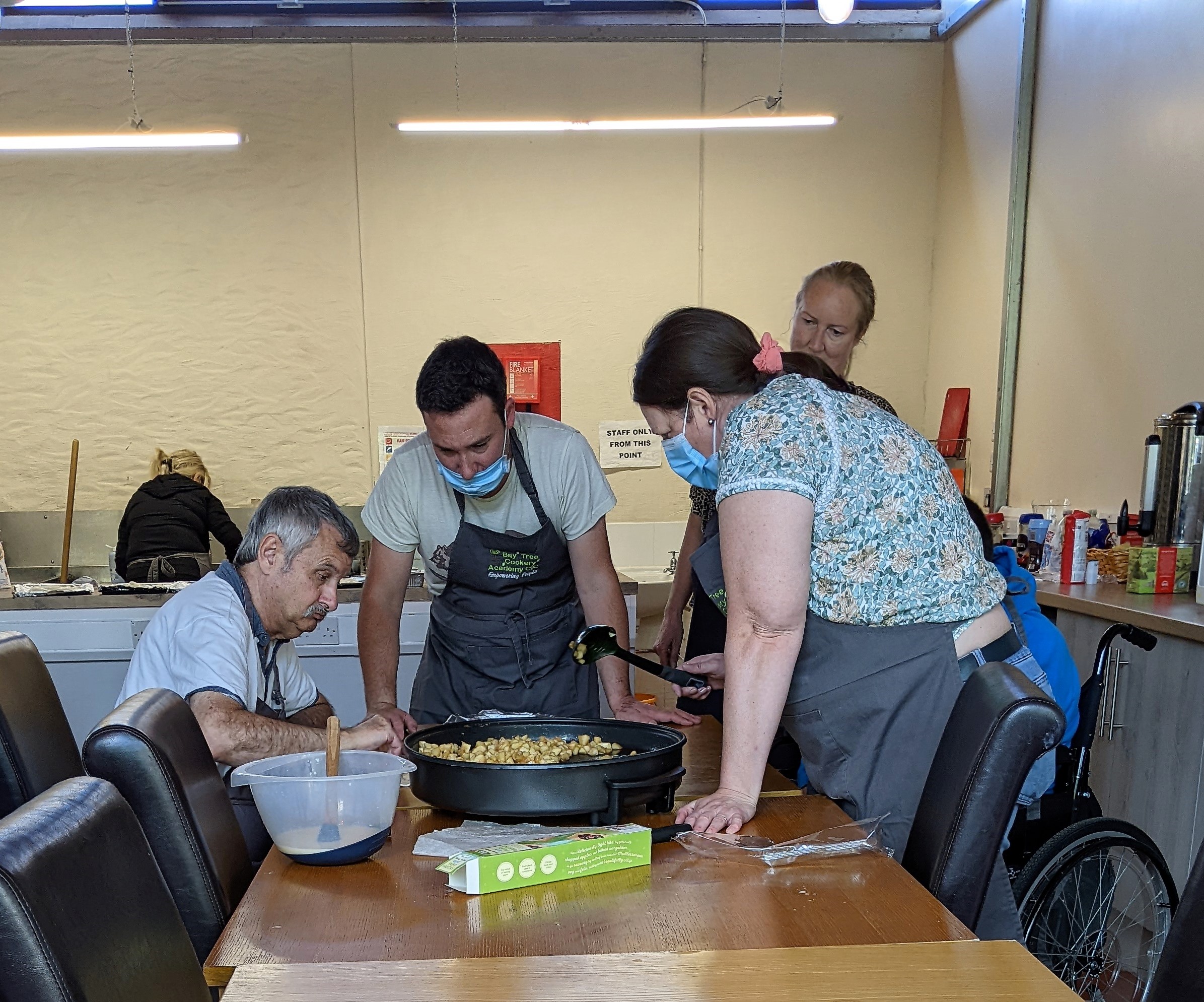
7 Simple Recipes.
Taking everything they learnt and with some support, everyone contributed to our 7 Simple Recipes. A recipe booklet which includes healthy and nutritional recipes to try at home and serve as inspiration to prepare meals together and enjoy healthier eating.
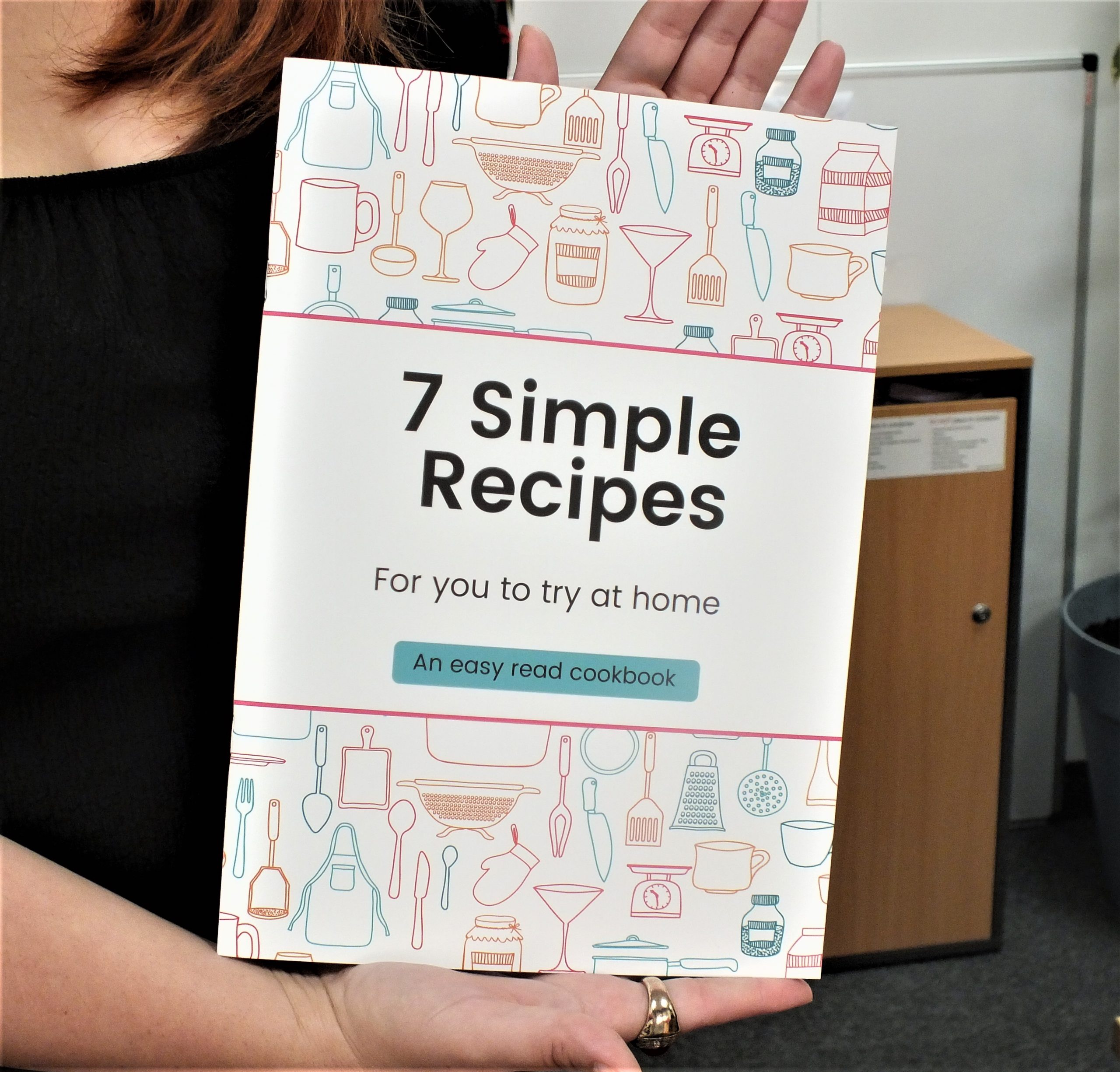
You can have a look for yourself by clicking HERE.
We also have printed copies available for you if you prefer.
To get your paper copy, simply call us on 0151 236 0855 or email us at Welcome@ofsl.org.uk and tell us your name and address and we will post one out to you.

Want to report an error?
Although every care is taken to ensure accuracy, we realise that from time-to-time errors can occur.
To make a report please contact us at Welcome@ofsl.org.uk